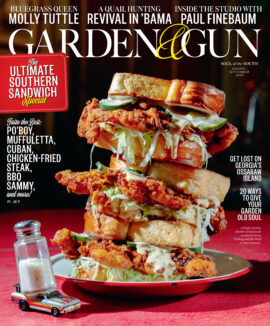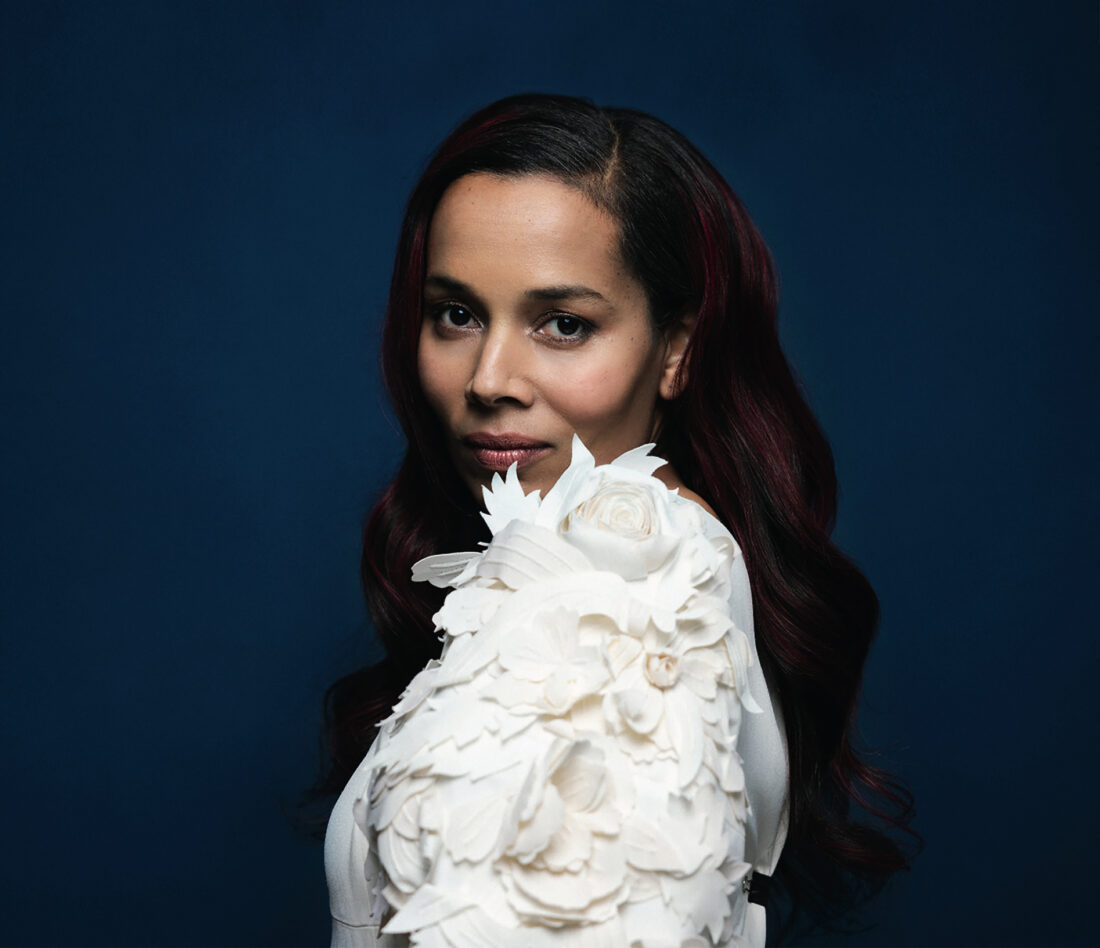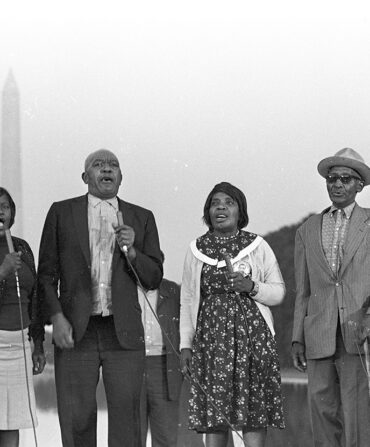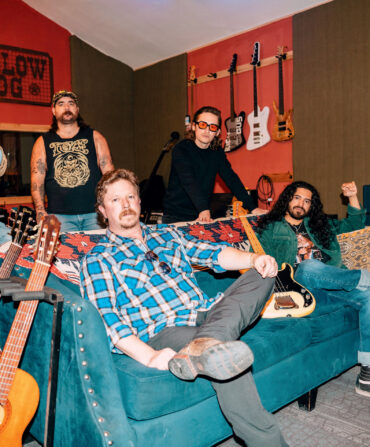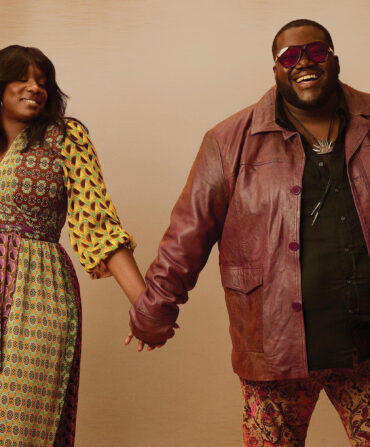One evening in May, Rhiannon Giddens was taking a walk near her home in southern Ireland. The stroll had become a nightly ritual, a way to clear her head after helping her two children get ready for bed. This night was special. A tweet popped up on her phone, announcing that she and her co-composer, Michael Abels, had won the Pulitzer Prize in Music for Omar, an opera that tells the story of a Muslim man who was enslaved and taken from his home in West Africa, then sold in Charleston, South Carolina.

The opera premiered at Charleston’s Spoleto Festival USA last year to a rapturous reception. But Giddens says she had forgotten Omar had been submitted to the Pulitzer committee until that moment. By the time she got home, her phone was exploding with messages.
The Pulitzer is yet another feather in the cap of one of the most decorated and singular artists of the last twenty years. After graduating from the Oberlin Conservatory of Music with a degree in vocal performance, Giddens returned to her native Greensboro, North Carolina, and worked various jobs, including a short stint as a singing hostess at a Macaroni Grill. Turning from a focus on opera, she became increasingly interested in American roots and folk music, particularly its overlooked origins. She took up the banjo and has since worked tirelessly to reclaim the instrument as one born in Black culture. She has played in numerous musical groups, including as a founding member of the Carolina Chocolate Drops; has given countless lectures; and received a MacArthur “genius” grant in 2017. She just completed a ten-part video series on the history of the banjo, and currently hosts My Music with Rhiannon Giddens on PBS. “Part of the problem is that I say yes to too many things,” she says. “I can’t take my foot off the gas, because I want to make sure that the story gets told.”
But on her new solo album, You’re the One—her first since 2017’s Freedom Highway—Giddens shifts gears, and the results are an absolute delight. While the banjo is still present, it’s fleshed out with funk, zydeco, blues, and bold horns. Throughout, she channels several of her female singing heroes. “Too Little, Too Late, Too Bad” kicks off the album with a burst of Aretha Franklin R&B. There’s some sassy Dolly Parton in “If You Don’t Know How Sweet It Is”; the hushed dramatics of Patti Page in the torch song “Who Are You Dreaming Of”; and Bonnie Raitt’s acoustic country blues on “Yet to Be,” a duet with Jason Isbell that tells the story of a Black woman in a relationship with an Irishman (Giddens’s ex-husband and the father of their children, Michael Laffan, is an Irish musician). “‘Yet to Be’ is a throwback to nineties country that I listened to so much when I was younger,” she says. “And I love that because that’s a part of who I am. I listened to music made by strong women.”
Giddens wrote the album’s songs over the past several years and tapped the producer Jack Splash, known for his work with Alicia Keys, St. Paul & the Broken Bones, and Tank and the Bangas. At Miami’s legendary Criteria Recording Studios, she and her longtime collaborators holed up with Splash’s crew of horn players and percussionists, and the chemistry is palpable from the jump. “These two distinct groups melded completely,” Giddens says. “Everybody was like, ‘Oh, this is gonna be fun.’”
Giddens will tour for You’re the One this fall and then dive into other projects, including one centered around the impact of the transcontinental railroad. So what does she do to relax? “Crocheting,” she says. “In fact, I’m finishing up a blanket right now.” It’s perhaps not a surprising hobby for an artist who is always striving for her work to serve a larger purpose, her “mission,” as she calls it, which she says she will never give up. “But the point of this record is, if I can’t explore the different aspects of myself as an artist, then I won’t be as good at doing the mission.”

